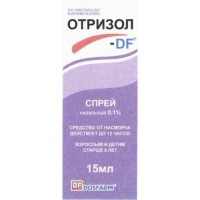Allerway (Levocetirizine) 5 mg, 30 tablets
- $14.00
What is Allerway (Levocetirizine)?
Allerway, containing 5 mg of Levocetirizine per tablet, is an antihistamine used to treat allergy symptoms. It is commonly prescribed for conditions such as allergic rhinitis, which includes symptoms like a runny nose, sneezing, and itching, and for treating urticaria, which is characterized by itchy skin rashes.
How Does Allerway Work?
Levocetirizine, the active ingredient in Allerway, belongs to a class of drugs known as antihistamines. It works by blocking the action of histamine, a substance in the body that causes allergic symptoms. By reducing the effects of histamine, Levocetirizine helps alleviate symptoms like itching, swelling, and rashes.
When Should You Use Allerway?
Allerway is specifically indicated for the symptomatic treatment of allergic rhinitis, which can be either seasonal or perennial, and chronic urticaria. If you experience symptoms such as persistent sneezing, a runny or blocked nose, itchy eyes, or hives, Allerway may be recommended by your healthcare provider.
Who Should Not Use Allerway?
Certain individuals should avoid taking Allerway. These include:
- Those who have a known hypersensitivity to Levocetirizine or any other ingredients in the tablet.
- Individuals with severe chronic kidney disease (with a creatinine clearance less than 10 ml/min).
- Children under the age of 6.
- Pregnant women and those who are breastfeeding, as the drug can pass into breast milk.
What Precautions Should You Take?
If you have kidney problems or are an elderly patient with moderate to severe kidney impairment, your dosage of Allerway may need to be adjusted. Additionally, patients with conditions that predispose them to urinary retention, such as spinal cord injury or prostate enlargement, should use Allerway with caution, as it may increase the risk of urinary retention.
Patients with lactose intolerance should be aware that Allerway tablets contain lactose, and they should consult with their healthcare provider before using this medication.
Can Allerway Interact with Other Medications?
While there are no significant clinical interactions noted between Levocetirizine and other common drugs, it is always advisable to inform your healthcare provider of all medications you are taking. In particular, caution is advised when combining Allerway with alcohol or central nervous system depressants, as it may enhance the sedative effects.
How Should You Take Allerway?
Allerway should be taken orally, either with or without food, and swallowed whole with a small amount of water. The typical dosage is 5 mg once daily. However, for patients with renal impairment, the dosing frequency may need to be adjusted based on the severity of the condition.
What Should You Do in Case of an Overdose?
In the event of an overdose, symptoms may include drowsiness in adults and agitation or restlessness in children. If an overdose is suspected, immediate medical attention is necessary. Treatment generally involves gastric lavage, administration of activated charcoal, and supportive care, as there is no specific antidote for Levocetirizine. Hemodialysis is not effective in removing the drug from the body.
Can You Drive or Operate Machinery While Taking Allerway?
While no significant effects on the ability to drive or operate machinery have been observed at the recommended dose of 5 mg, some individuals may experience drowsiness or dizziness. It is recommended to avoid engaging in activities requiring full alertness until you know how Allerway affects you.
What is the Recommended Duration of Use?
For intermittent allergic rhinitis, Allerway can be used based on the presence of symptoms and should be discontinued once symptoms subside. In cases of persistent allergic rhinitis, continuous therapy may be recommended during exposure to allergens. Clinical experience supports the use of Levocetirizine for up to six months, and for chronic urticaria, it can be used for up to a year under medical supervision.








